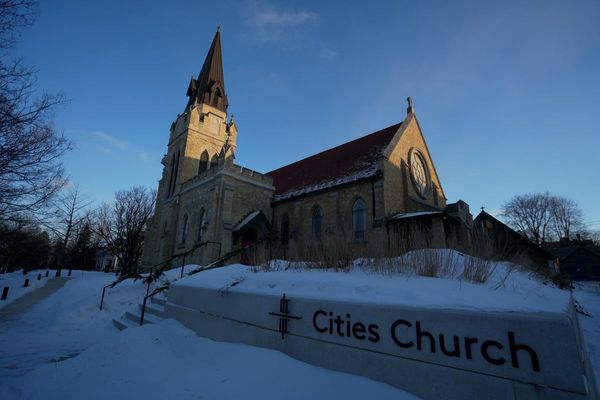
Fontaine d’Ouche, a social housing district in Dijon, is setting the pace for energy innovation in Europe. Thanks to solar panels, smart tech and deep renovations, the neighbourhood now produces more energy than it consumes.
More than 10,000 square metres of solar panels have been installed across the area. Along with energy upgrades and new technologies, the project has turned this working-class part of central France into a model for sustainable living.
Around 8,000 people live in Fontaine d’Ouche, with some 1,100 residents in the main renovation zone where social housing units are now fitted with solar panels.
The energy produced is shared and partly owned by the community.
"We produce 118 percent of our energy needs," says Massar N'Diaye, deputy mayor in charge of social economy and jobs, who grew up and still lives in the neighbourhood. "So we're producing more than we consume and the rest can be sold on."
Low-tech living in Paris: A four-month journey to suburban self-sufficiency
Officially inaugurated on Friday, Fontaine d'Ouche is France’s first positive energy neighbourhood (PED).
The pilot project is being co-led by Dijon and the Finnish city of Turku. It forms part of the European Union’s Green Deal and long-term goal to reach carbon neutrality by 2050.
“We’re proving that a human-scale city can be at the forefront of ecological innovation,” said François Rebsamen, head of Dijon Métropole and the city's former mayor.
“This is not just about technology, it’s about giving every neighborhood a stake in the energy transition," he told FranceInfo.
A €36m green investment
The overhaul of Fontaine d’Ouche cost €36 million. This includes €6.2 million in EU subsidies, €13.8 million in public investment and €16.7 million from social housing providers.
In total, 4,500 solar panels have been added to rooftops – not only on social housing, but also on schools and sports centres. These generate 2 megawatts of power, N’Diaye told RFI.
Buildings have been retrofitted to be more energy efficient and homes equipped with smart thermostats, sensors and automated heating systems. This has cut energy use by up to 38 percent improving comfort all year round.
Hemp, the 'green gold' that France hopes will help cut carbon emissions
Local residents are already feeling tangible benefits.
"The increase in purchasing power exists. Residents live in homes that have been renovated and that gives them better protection from the cold," said N'Diaye, whose mother lives in one of the renovated buildings.
The innovation goes far beyond solar panels. The neighbourhood now boasts a district heating system fuelled by 83 percent renewable energy. Surplus electricity is stored in recycled EV batteries and hot water tanks.
"Residents can control their energy consumption remotely via applications and people are teaching them how to use these new tools," he adds. "When a project like this finally becomes concrete, you say to yourself 'I'm the pilot of what may affect others tomorrow'."
Macron revives climate council as French emissions targets fall short
Positive energy all round
N'Diaye says there's a sense of local pride that a working-class community like theirs is at the forefront of the ecological transition.
"When you live in a priority urban district, you are often stigmatised but now we're being watched by Europe as an example of positive energy production."
He continued: "In the end we also produce positive energy in the community and we're showing that we too, as residents of the city's priority zones, are at the heart of the fight against global warming and respect for our planet."
Altogether, 30,000 square metres of buildings in Fontaine d’Ouche are energy positive, resulting in a 75 percent reduction in greenhouse gas emissions, making Dijon a pioneer in France’s climate transition.
The EU is aiming for 100 positive energy districts by 2025.







